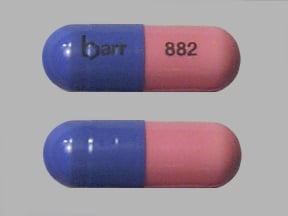
Hydrea Coupons & Savings Card – Discount Prices from $17.55
Brand for: Hydroxyurea
My prescription
Edit
500MG, Hydroxyurea (90 Capsules)
Select pharmacy

CVS
$32.25
COUPON PRICE
Walgreens
$17.55
COUPON PRICE
Albertsons
$28.84
COUPON PRICE
Walmart
$29.09
COUPON PRICEHydrea savings card
Show this card to your pharmacist
Walgreens
$17.55
BIN
ID
PCN
GRP
011867
LHC5A6B688
HT
LABH001
Powered by
Related antimetabolites prescriptions
More prescriptions for thrombocythemia
Related antimetabolites prescriptions
More prescriptions for thrombocythemia
Price history for Hydrea (brand) & Hydroxyurea (generic)
90 Capsules, 500MG
Average retail price for Hydrea
Average retail price for Hydroxyurea
Average SaveHealth price for Hydroxyurea
Our price history data is based on aggregated prescription data collected from participating pharmacies in America. Our prescription data updates daily to reflect the latest price changes. If you notice a missing data point, it means there wasn't sufficient data available to generate a monetary value for that date.
Over the last 12 months, the average discount price of Hydrea is $32.09 using the SaveHealth savings card. That's an average savings of 70.55% on Hydrea with our discount card.
*Retail prices are based on pharmacy claims data, and may not be accurate when we don't have enough claims.
Hydrea (Hydroxyurea) dosage forms
Dosage Quantity Price from Per unit 500MG 90 Capsules $29.09 $0.32 500MG 1 Capsule $2.72 $2.72 500MG 10 Capsules $4.73 $0.47 500MG 20 Capsules $6.96 $0.35 500MG 60 Capsules $15.89 $0.27 500MG 100 Capsules $31.32 $0.31
| Dosage | Quantity | Price from | Per unit |
|---|---|---|---|
| 500MG | 90 Capsules | $29.09 | $0.32 |
| 500MG | 1 Capsule | $2.72 | $2.72 |
| 500MG | 10 Capsules | $4.73 | $0.47 |
| 500MG | 20 Capsules | $6.96 | $0.35 |
| 500MG | 60 Capsules | $15.89 | $0.27 |
| 500MG | 100 Capsules | $31.32 | $0.31 |
What is the drug Hydrea used for?
Hydrea is used primarily to treat certain types of cancer, such as chronic myelogenous leukemia (CML) and head and neck cancers. It is also used to manage sickle cell anemia by reducing the frequency of painful crises and the need for blood transfusions.
Is Hydrea a chemotherapy?
Yes, Hydrea (hydroxyurea) is a chemotherapy medication. It is used to treat certain types of cancer, such as chronic myelogenous leukemia and certain types of head and neck cancer. It works by slowing or stopping the growth of cancer cells.
What is the danger of hydroxyurea?
Hydroxyurea can have several potential dangers and side effects. It may cause bone marrow suppression, leading to a decrease in blood cells, which can increase the risk of infections, anemia, and bleeding. Other possible side effects include gastrointestinal issues, such as nausea and vomiting, and skin reactions. Long-term use may increase the risk of secondary cancers. It is important for patients to be closely monitored by their healthcare provider while taking hydroxyurea.
What does hydroxyurea do to the blood?
Hydroxyurea works by increasing fetal hemoglobin levels in the blood, which can help reduce the frequency of painful episodes and the need for blood transfusions in individuals with sickle cell disease. It also decreases the number of white blood cells and platelets, which can be beneficial in conditions like certain types of cancer, where it helps to control the overproduction of these cells.
What class of drug is Hydrea?
Hydrea is classified as an antineoplastic agent. It is used in the treatment of certain types of cancer by interfering with the growth of cancer cells.
